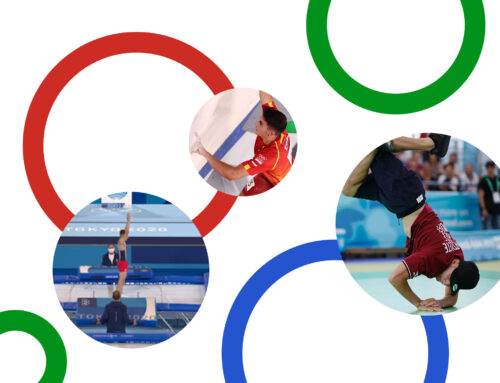You send your child to school to learn “hard skills,” like reading, writing and math. But what about the “soft skills” they need to become successful? How can they learn skills like emotional intelligence, leadership, communication, cooperation, integrity, drive and focus?
Dance.
You enroll them in dance classes. And, more specifically, you select a dance studio with a proven track record.
“For 19 years, we have trained children and teens who become successful scientists, lawyers, doctors, dancers and choreographers,” says Jennifer Dell, artistic director and co-owner of The Pulse Performing Arts Studio in Bedford Hills. “We aim to instill leadership, self-esteem and self-confidence in all our dancers, but we also believe in ice cream, fun and just letting kids be kids.”
“We believe that children can learn so much more than they are given credit for,” Dell, who began dancing at age four, continues. “We provide a supportive and fun environment for our young dancers. Even our youngest students learn strong techniques so, if they choose to keep dancing and possibly want to perform or compete as they get older, they can transition easily.”
And learning these essential soft skills starts with a great beginning.

A strong foundation teaches communication and cooperation
Beginning at age three, children are taught the foundations of dance, basic terminology and how to follow instructions, while strongly emphasizing fun and creativity. In Twirling 3s and Twirl N Tap 3s, young dancers learn a true class structure, rhythm and how to wait their turn, all while developing a love of dance and music. Pirouettes & Princesses and Twirl N Tap 4s highlight the technical elements of ballet and tap while helping dancers preparing for hour-long classes when they turn five.
Plus, there’s Rockin Tots, a hip hop class for 3–4-year-olds that gives children a chance to become their favorite pop star while learning rhythm, coordination and how to follow directions. And a new class, Broadway Babies, uses the best of Broadway showtunes to teach 3–4-year-olds how to express themselves theatrically through movement and basic steps. And there’s even a My Adult & Me class for two-year-olds that teaches about music and how to move alongside their favorite adult.
“The classes are a lot of fun, and the girls and boys often become good friends,” says Bill Doran, the other co-owner of The Pulse. “Plus, in addition to our professional staff, some of our teens join the classes as mentors. It’s an incredible honor to be asked, and our young dancers benefit from these excellent role models.”
The Pulse prides itself on its professional staff. Dell, who has danced her way around the country, performing in regional theater and national tours, carefully selects the Broadway dancers, choreographers and university professors who teach each class.
“The majority of our staff commute from Manhattan and are still active in the New York City dance community,” Dell explains.
As children grow, more classes become available, including ballet, tap, jazz, contemporary, hip hop, boys only hip hop, acro (taught by Doran, a former gymnast) and musical theater. And at around six years old, they have the opportunity to compete, if they so choose.

Giving back builds emotional intelligence
There are other ways dance can teach those essential soft skills, especially at The Pulse. Their invite-only Nova Jazz dance company gives dancers the opportunity to give back to the community.
“Every year, the students are presented with several charities they can relate to, and then, as a group, they choose the one they’d like to work with,” Dell explains. “Throughout the year, they raise money through things like bake sales, and last year we held our first benefit concert. The students also perform at nursing centers, parades, festivals in Manhattan and more.”
Nova Jazz performs 8-10 times a year between October and May. They’ve also performed at Walt Disney World and participated in Broadway dance workshops in Manhattan. Last year, they performed on the Intrepid. Dancers as young as six can be invited to join.

Learning integrity, drive and focus
“We have won a national championship every year for the past ten years,” says Dell. “And our dancers consistently rank in the top three at regional competitions.”
The Competitive Edge team is comprised of approximately 50 dancers who perform a combination of solos, duos, trios, groups and production.
“Our dancers learn how to take instruction and feedback, compromise and work well with others,” Dell explains. “They also learn discipline, how to hold themselves accountable and essential teamwork skills. And, most importantly, they gain self-confidence, learn how to win and lose, and that it’s okay to not always be the best.”
“In the fall, we hire professional choreographers from around the country,” Dell continues. “They come in and teach each piece for five to six hours. Throughout the year, Competitive Edge dancers practice their routines with one of our main teachers and compete throughout the season.”
Students who compete spend 15 to 18 hours in the studio each week, which parents of teens appreciate because, they say, it keeps their kids out of trouble.
“A lot of our older kids have classes until nine on Friday nights,” says Doran. “By the time they get home, eat and shower, it’s 10:00, and they’re tired. And on Saturdays, they dance from 11 until five. So, instead of going out to high school parties, they spend their weekends with their dance friends.”
The Pulse, Dell says, is more than a dance school; it’s a family filled with dancers of all types.
“The Pulse began with a mission to provide children with the tools to become more responsible, dedicated and confident adults,” she says. “It’s fun, it’s trendy and it’s a home away from home. Some come for our intense dance training program while others simply want to dance the stress away. Everyone here connects through their love of dance.”
Registration for fall classes begins on May 14.
The Pulse Performing Arts Studio • 196 Route 117 Bypass Road, Bedford Hills • (914) 241-0200
This article was published in the May/June 2024 edition of Connect to Northern Westchester.

The editorial staff at Connect To magazine.










